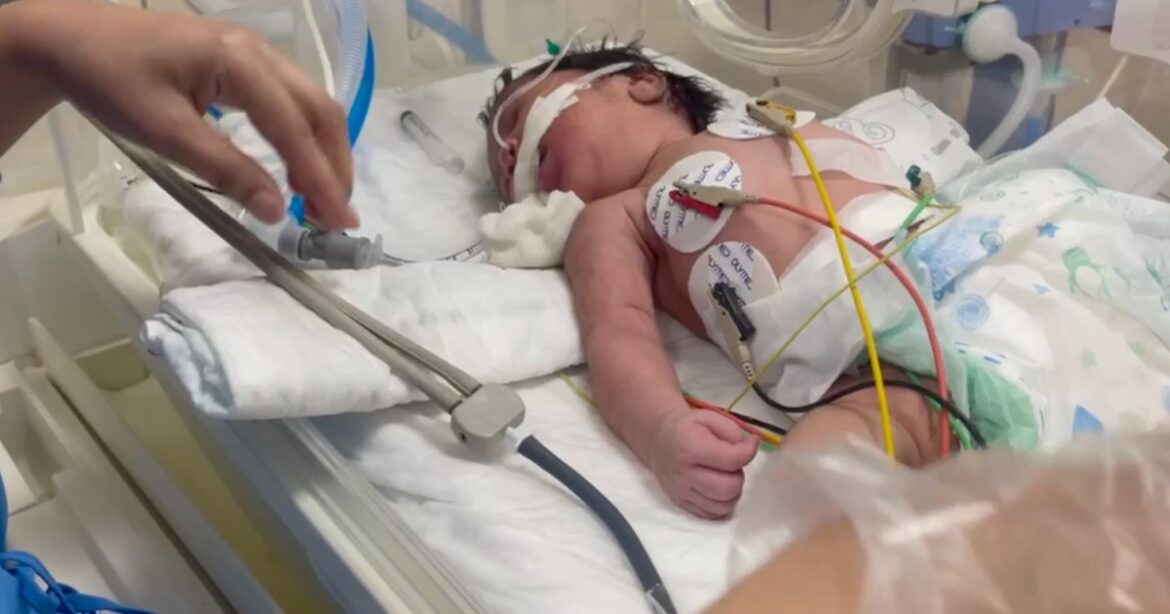The constant turnover of dialysis machines. The rhythmic drip of blood from the IVs. The low hum of the life support equipment that keeps the babies alive in the incubators, the tubes going in and out of their tiny bodies.
The day-to-day operations of the Al-Aqsa Martyrs’ Hospital in the central Gaza Strip contrast sharply with the chaos of weeks of Israeli bombardment, which in recent days has targeted a number of hospitals in the Gaza Strip. besieged enclave.
But electricity and water crises due to Israel’s campaign after the October 7 Hamas attack – which has already closed more than half of Gaza’s 35 hospitals – are also drastically affecting the central hospital. from Gaza.
Babies in incubators and dialysis patients hooked up to fuel-powered machines are particularly at risk – especially since Al-Aqsa is the only facility for kidney patients in the central governorate of the Gaza Strip, Khalil al- Dakran, hospital spokesperson, to Al Jazeera. Sanad control agency.
“If electricity and water cuts persist and fuel runs out, patients will be transferred to mass graves if the aggression continues,” al-Dakran warned.
“And the world is watching,” he continued bitterly.
Reduce dialysis care
The hospital has seen a surge in patient numbers since the start of the latest conflict, with thousands of wounded pouring in and straining the hospital’s capacity.
Additionally, as thousands of displaced people from the northern areas of Gaza flowed south, the number of patients increased, particularly those with chronic illnesses requiring treatment, such as dialysis for kidney disease.
The hospital had to limit the duration of dialysis treatments from four hours to two and a half hours, while reducing the frequency of patients’ dialysis sessions per week, al-Dakran said.
Patients are terrified, not only of the bombs raining down, but also of whether they will receive the care they need.
“I am on dialysis three times a week, waiting for hours on crowded roads, terrified,” said Maryam al-Jayar, a displaced woman, in Sanad.
“We wait so long, from morning to evening, for dialysis. And this while the bombings continue. Now I get shorter and less frequent dialysis and, in addition, with water and electricity shortages, the dialysis process itself does not work properly and can cause blood clots,” said Nesma Sharir , another renal patient.
Infants found under rubble
Meanwhile, Al-Aqsa’s neonatal intensive care unit is also buckling under the strain of war.
There, nurse Warda al-Awawda hovers over the incubators, monitoring the babies sleeping there.
Al-Awawda and his colleagues say there were many more newborns admitted to the intensive care unit, not only premature babies but also newborns injured by the bombings.
Sometimes the journey babies have to take to get to the hospital contributes to the deterioration of their health, al-Awada told Sanad, noting that she has seen mothers with their babies – or babies alone – arriving in all kinds of means of transport, including donkey carts in some cases.
Some babies are carried to the hospital in the caring but jostling arms of someone who has just rescued them from the rubble and wants them to get the care they need as quickly as possible and there is no stretcher available.

An infant, Hassan Mishmish, arrived at the hospital after being rescued from the rubble. His parents were found dead.
“He was in the arms of his deceased mother, covered in dust,” al-Awawda said.
“All the nursing staff take turns looking after him after the loss of his parents.
“His brother is also injured, he is in the children’s room and his grandmother is also injured. There is no one left in his family to take care of him,” she added, saying there are dozens of other similar cases of babies found under the rubble.
There, it is increasingly difficult for nurses to care for babies, although it is not for lack of effort. The hospital is facing severe shortages of essential supplies, including items as basic as soap needed for hand sanitizing.



